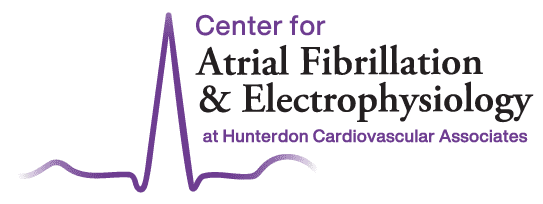Following are some of the most frequently asked questions we receive. If you cannot find the answer to your questions here, please contact us and we’ll be happy to address your concerns.
What is The Center for Atrial Fibrillation and Electrophysiology at HCA?
The Center for Atrial Fibrillation and Electrophysiology at HCA provides patients with cutting-edge technology combined with state-of-the-art cardiac arrhythmia diagnosis and treatment in a personalized care environment.
What is an Arrhythmia?
An arrhythmia occurs when your heart beats either too quickly, too slowly or in an irregular pattern. Symptoms of arrhythmias include chest pain, shortness of breath, lightheadedness or dizziness, sweating and a heartbeat that is too fast or slow or that skips beats. The most common type of arrhythmia is atrial fibrillation.
What is Atrial Fibrillation (AFib)?
Normally, your heart contracts and relaxes with a regular rhythm. In AFib, the upper chambers of the heart (the atria) operate chaotically. The disorganized behavior stops the heart from pumping blood normally. This malfunction significantly increases the risk of a blood clot forming, coming loose and being carried through the bloodstream to the brain. In the brain, the blood clot may block the flow of blood through an artery, resulting in a stroke. About 15-20 percent of strokes are caused by AFib. To help prevent a stroke, most people with AFib are prescribed an anticoagulant, also known as a blood thinner.
What are the symptoms of AFib?
While some patients might not experience any symptoms, AFib can cause the following:
- Heart racing or skipping beats
- Angina (chest tightness or pain)
- Dizziness or lightheadedness
- Difficulty catching one’s breath
- Palpitations
- Fatigue and weakness
What are the treatment options for AFib?
Your physician will speak with you about the best options for you, based on your condition and lifestyle. Possible treatments include:
- Medication management
- Cardiac ablation
- Pacemaker implantation
- Electrical cardioversion
- WATCHMAN implantation
Do you take insurance?
Yes. Visit our insurance page to view a list of the insurers and products we participate in, as well as any exceptions. Instructions are provided if you are in-network or out-of-network. We strongly recommend that you contact us or your health insurance plan to confirm whether your plan is in-network or out-of-network.
Where are you located?
We are conveniently located just off route 31 in Flemington on the same campus as Hunterdon Medical Center.
1100 Wescott Drive, Suite G2 A
Flemington, NJ 08822
What services do you provide?
Our team approach to your individualized care centers around a full range of arrhythmia diagnostic and treatment services, monitoring, follow-up care and lifestyle behavior counseling.
How do I know if I qualify for your services?
The risk of AFib increases with age, and many people with AFib have some form of underlying heart problem. If you have symptoms of AFib or another arrhythmia, contact our office today for evaluation. Some common causes of AFib include:
- Hypertension, particularly longstanding
- Prior heart attack
- Congestive heart failure
- Heart valve problems, such as mitral regurgitation or mitral stenosis
- Major surgery, especially heart surgery
- Alcohol use, including intermittent heavy (“binge”) drinking
- Hyperthyroidism: AFib occurs in about 15 percent of all people with an overactive thyroid gland
- Medications: some medications can precipitate AFib as a side effect
- Obstructive sleep apnea
- Most chronic lung diseases, particularly emphysema
- Obesity
- Physical inactivity
- Diabetes
- Chronic kidney disease
